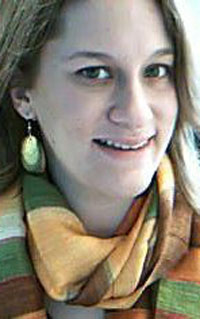Commentary: Changing our Hearts to Change the World
 We are living in a time of flux. In the last 12 months alone we, the USA, have been forced to confront a range of moral challenges including issues of racism, police violence, mass incarceration, immigration, LGBT rights and rape culture. There is a lot happening. And the stakes – people’s very lives – are high. As someone who engages in online community building, this has been an incredible moment to witness. People are sharing their stories. Occasionally those stories are breaking through our public consciousness and leading to meaningful change. It is an extraordinary thing to behold.
We are living in a time of flux. In the last 12 months alone we, the USA, have been forced to confront a range of moral challenges including issues of racism, police violence, mass incarceration, immigration, LGBT rights and rape culture. There is a lot happening. And the stakes – people’s very lives – are high. As someone who engages in online community building, this has been an incredible moment to witness. People are sharing their stories. Occasionally those stories are breaking through our public consciousness and leading to meaningful change. It is an extraordinary thing to behold.
But there’s a downside to having these important and difficult conversations on the Internet. For every light-bringing, truth-sharing moment that happens in the digital space, there is a counterpoint of hate, or defensiveness, or unwillingness to hear a story that doesn’t match our own needs, wants, or experience. I wrestle with this. The hate is hard to digest. But the piece that deflates me and makes me feel hopeless is the dismissal of other people’s lived experience; the unwillingness to imagine the world is a different place for some than it is for others.
I’ve been struggling to come up with a way to understand how reasonable people could be so dismissive of their fellow humans. In the field of communications we rely on theories of persuasion to guide our work. One example is the theory of cognitive dissonance. It is a model formulated in the 1950’s by Leon Festinger which states when a person holds conflicting attitudes, beliefs or behaviors they experience a feeling of discomfort or unbalance. To alleviate the feeling of discomfort, something in their attitudes, beliefs or behavior must shift.
Say for example I choose not to wear my seatbelt, but am confronted with evidence that demonstrates the danger of driving without one. I value my life and I now know that failing to wear a seatbelt could be deadly. What am I supposed to do with this inconsistency between my knowledge and actions? According to Festinger, I can respond in three basic ways – (1) I can change my behavior to align with my new knowledge; (2) I can seek out alternative sources of information to validate my behavior and counter what I’ve learned; or (3) I can reduce the importance of the new information I’ve learned, perhaps by telling myself, “Hey, you have to die of something, so it might as well be this.”
I think we do a similar thing when we are confronted with uncomfortable, new knowledge about injustice. Say for example a Native American shares with me the mascot for my favorite team is offensive to them. That might make me uncomfortable. It goes against my personal understanding of what the team means and even my vision of myself as a good person. So, as Festinger suggests, there are different ways I can react. I can receive this new knowledge and, difficult as it might be, I can change my attitude toward my team and their mascot. Or I can go in another direction, seeking out information to counter the narrative that has been shared with me or minimize its importance.
This is what I’m seeing over and over as I read comments and commentaries on the Internet. People are telling their stories of deep hurt and injustice. And in reaction, some people are engaging in hard self-reflection and coming to understand the world in new ways. But others seek out alternative narratives as a way of diminishing what they have learned. Or they step back and refuse to do the hard work of changing their behavior.
I get it. Change is hard. Self-reflection takes work. Listening doesn’t always come naturally. But how can we ever get better if we refuse to hear what other people are telling us? How can we advance if we’re not willing to evolve our beliefs and our behaviors when we learn new things?
We can be better. But first we must be willing to listen. We must be willing to be uncomfortable. We must commit to transforming our own hearts and minds so we can get to the work of transforming the world.
Jessie Palatucci is Online Communications Specialist
View this and other columns on the UCC’s Witness for Justice page.
Donate to support Justice and Witness Ministries.
Click here to download the bulletin insert.
Related News
A Prophetic Call for Justice and Peace in Palestine
The executive leaders of the United Church of Christ have issued the following statement...
Read More‘Love is Greater Than Fear’: Regional Youth Events get to the heart of gospel message
United Church of Christ teens attending this summer’s Regional Youth Events (RYE) are...
Read MoreUCC desk calendars available to order now
Prepare for your day, month and year with the United Church of Christ desk calendar —...
Read More

